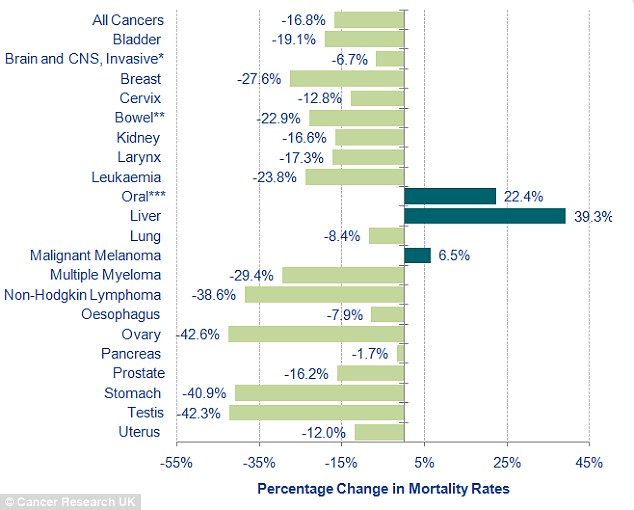New publications
Cancer mortality will decline
Last reviewed: 01.07.2025

All iLive content is medically reviewed or fact checked to ensure as much factual accuracy as possible.
We have strict sourcing guidelines and only link to reputable media sites, academic research institutions and, whenever possible, medically peer reviewed studies. Note that the numbers in parentheses ([1], [2], etc.) are clickable links to these studies.
If you feel that any of our content is inaccurate, out-of-date, or otherwise questionable, please select it and press Ctrl + Enter.
British scientists predict that by 2030 the number of deaths caused by malignant tumors will decrease by 17%.
Experts came to this conclusion based on the fact that the number of smokers around the world will gradually decrease, and the popularity of healthy eating will increase.
In addition, by the stated deadline, scientists expect the emergence of improved methods for diagnosing and treating diseases, in particular the most common types of cancer.
In 2010, according to various health organizations, there were 170 deaths from cancer per 100,000 people. In 17 years, this figure will drop to 142 deaths per 100,000 people. The number of cases of ovarian cancer should decrease by 42.6% (the current figure is 9.1 women per 100,000 people, the predicted figure is 5.3 women per 100,000). Mortality from breast cancer will also decrease by 28%, and from bowel cancer - by 23%. The number of fatal outcomes from prostate cancer, according to scientists, will decrease by 16%.
However, mortality from oral cancer may probably increase by 22%. Scientists also see a trend towards an increase in the number of deaths from liver cancer – by 39%.

"Our research shows that the number of cancer cases, adjusted for age and health, will fall significantly over the next decade," said Professor Peter Sasieni, from the University of London. "And the most encouraging thing is that the rates of the most common cancers, such as breast, prostate, bowel and lung cancer, will fall."
Experts say that this trend will be greatly influenced by the fact that the majority of the planet's population will begin to think about their diet, what and how they eat. There is also hope for an increase in people's physical activity.
"The forecasts are quite optimistic. They highlight the significant advances that science is gradually making in the fight against cancer," says Harpel Kumar, chief executive of Cancer Research UK.
“But we understand that we still have a lot to do to live to see the day when no one dies prematurely due to cancer,” he added.
